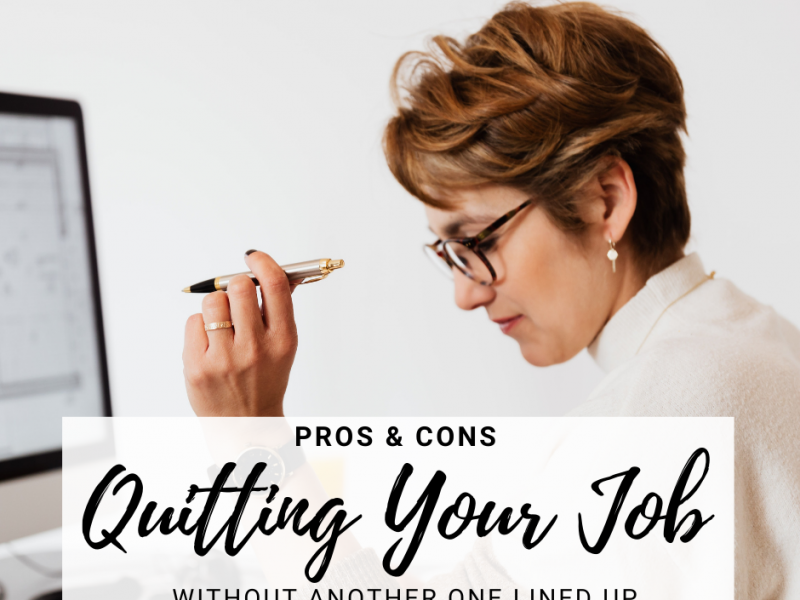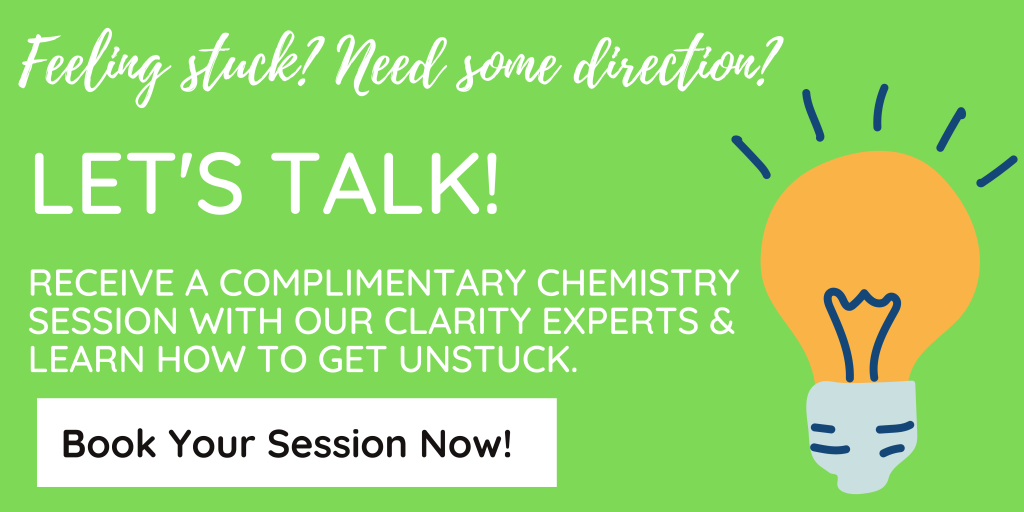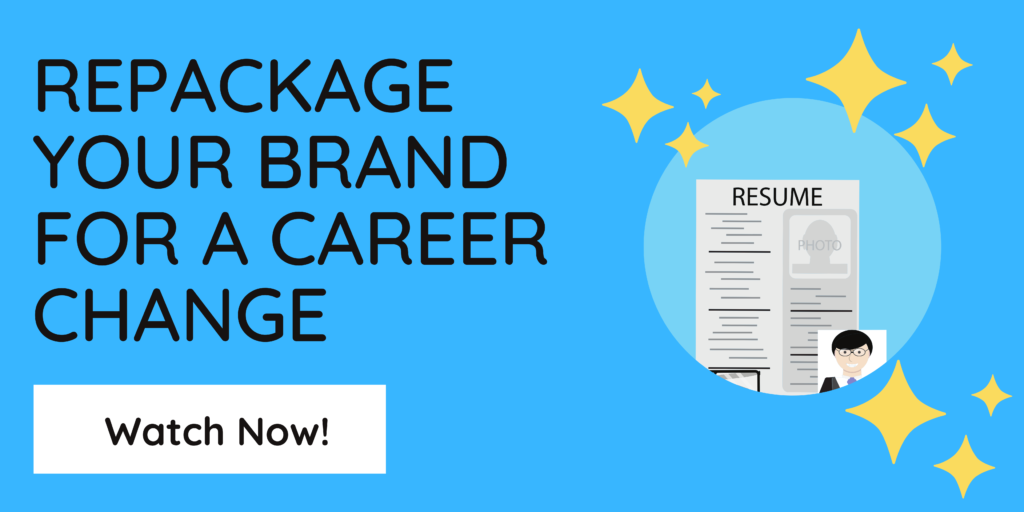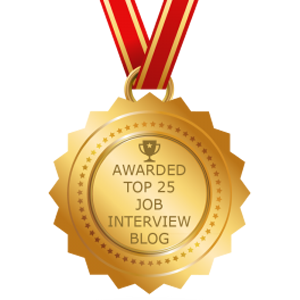You’ve hit your limit in your job. It’s completely sucking the life out of you and you know it’s time to quit. However you don’t have another job lined up. Should you still quit? There are pros and cons to quitting a job without another one lined up. In this blog post we will break it down for you to help you make your decision with confidence.
You’ve probably heard that it’s easier to land a job when you have a job. There’s a lot of truth to this. Quitting can be a good or a bad move depending on your individual circumstances. So you’ll need to weigh out all the pros and cons in order to make a decision you can live with. Here is a list we’ve made for you based on our work with thousands of job searchers each year.
List of Pros for Quitting Your Job
1. You will reduce your stress and anxiety levels
Mental health is nothing to mess with. If your mental health is on the decline due to your job, making the break could be the best thing for you. You will want to determine just how bad the situation is and whether or not you can stick it out however before making a rash decision. If you just dislike your boss and are “over it” you may want to take a step back and consider whether or not it is truly a mental health issue or just a personality mismatch. Take an inventory to figure out whether or not it’s a job situation that can be salvaged. If it’s a highly toxic work environment, quitting might be a no-brainer. If you are suffering Sunday night anxiety attacks or feeling depressed most days, you want to seriously consider quitting before things get much worse. Your health is a priority so take an honest assessment of this in the professional realm and then decide.
2. You will have an opportunity to make a clean cut and start fresh in your career endeavors
Sometimes we have to leave behind the old and focus on the new in order to achieve our career desires. Quitting will give you the opportunity to take decisive action without delay. This isn’t to say that quitting will automatically put you on the right path. For most professionals it takes some hard work and a healthy dose of exploration to find that dream job and then land it. However if you are done wasting time in the wrong job and have the motivation to do the work it takes to switch paths, making the break can be well worth it.
Sign Up for a FREE 20-Minute Clarity Coaching Consultation Today!
3. You will have more time to devote to the things that matter in your life
Quitting your job means more time for you and your priorities. For many people that includes spending time with loved ones. If you have a high-demand job, you may have been putting these priorities on hold for longer than you liked. Time with loved ones is irreplaceable and a worthwhile pursuit if these loved ones have been taking the back seat to your career. If your mental health has been suffering, this time off will give you a break to recharge your batteries and get healthy again.
List of Cons Against Quitting Your Job
1. You will create a gap on your resume
This can end up being a big con when it comes to career reentry so you’ll want to consider this carefully. Resume gaps of are a very real turn-off when employers or recruiters are scanning a resume. As a former Executive Recruiter I can absolutely say that one of the first things hiring experts do when they conduct the initial resume scan, is look at the dates of employment. They are trying to understand how long you’ve been in each role. However if a set of dates are missing, then you may be flagged up as a non-candidate due to resume gaps. Quitting your job without another one lined up can be shaky territory as it will automatically result in a gap on your resume. This gap will stay with you the rest of your career so you’ll want to think twice about quitting without another job lined up.
If quitting without a job lined up, is unavoidable, one way to transition more smoothly, is to have a good reason for the gap and to be able to articulate it concisely. Reasons related to your career or life big picture will be better than no reasons at all. Family-related or health issues are also considered acceptable reasons to quit in some cases. You don’t need to go into detail if you quit for personal reasons, but don’t be afraid to explain your gaps on your resume to show your awareness. It’s important that you will be able to make sense of your timeline for the reader. If you don’t have a plan for permanent employment once you quit, try to at least have something lined up to keep your skills fresh so that you can speak to your gaps as not merely “downtime” when it does come time to interview for your next job.
“Working with NG Career Strategy saved me valuable time. They helped me to mentally prepare and focus on my job strategy. After The Resume Makeover, it took only two weeks to receive a call back for an interview. Even though it’s very competitive, with many applicants, I moved to the top of the heap.” – Marisa, Resume Makeover Client
Also worth considering, gaps aren’t all created equal. The worst types of gaps are those that linger for years and years. If you have up to a 6-month gap that is not as bad because employers understand it takes time to land a job. However it’s worth noting that a gap-free resume will be safer than even a small gap. Also if your gap took place 3 career moves ago, it’s not a big deal. It’s only your most recent gap (the one that fills the “present employment space” that creates potential issues).
2. The job market may be worse than you think
Another key consideration is the job market. Just because you want a job, doesn’t mean you are going to land one. This can be the case even more in a bad job market. If the job market is rough or in times of market uncertainty like during a pandemic, you may want to strongly consider staying in your job until another one is lined up. You need to be okay with the fact that you may not land a job for a year or more. That is often the reality when a job searcher leaves a job in a tough or competitive hiring market. Do some due diligence informational interviewing to understand your industry hiring situation before quitting. Otherwise you may find it takes an incredibly long time to land your next opportunity.
3. Income loss
Income loss is the most obvious con to consider especially if you are on a tight budget. Loss of income can create an incredible amount of stress – even more than being in a job you hate. Be sure you have a financial plan of some sort if you anticipate that you will be in a touch financial situation. Maybe you can make plans to move in with parents or family rent-free for a period of time. You can also cut down on unnecessary expenses in order to stretch your buck. Whatever the case, come up with some money-saving strategies that will keep you afloat. This way you will be less likely to have a panic-attack mid unemployment.
4. Uncertainty
One of the greatest challenges of being in the job search is that it comes with a ton of uncertainty. There is never any guarantee that you will land a job in a set amount of time. Even if people are talking about how great the hiring market it is, there’s no guarantee. Hiring depends on a lot of variables one of which is brand fit. If you’re trying to make a drastic career change, the chances of you appearing a perfect fit won’t be great. Prepare yourself mentally for dealing with the uncertainty that lies ahead.




 8 Common Salary Negotiation Mistakes and How to Avoid Them
8 Common Salary Negotiation Mistakes and How to Avoid Them


